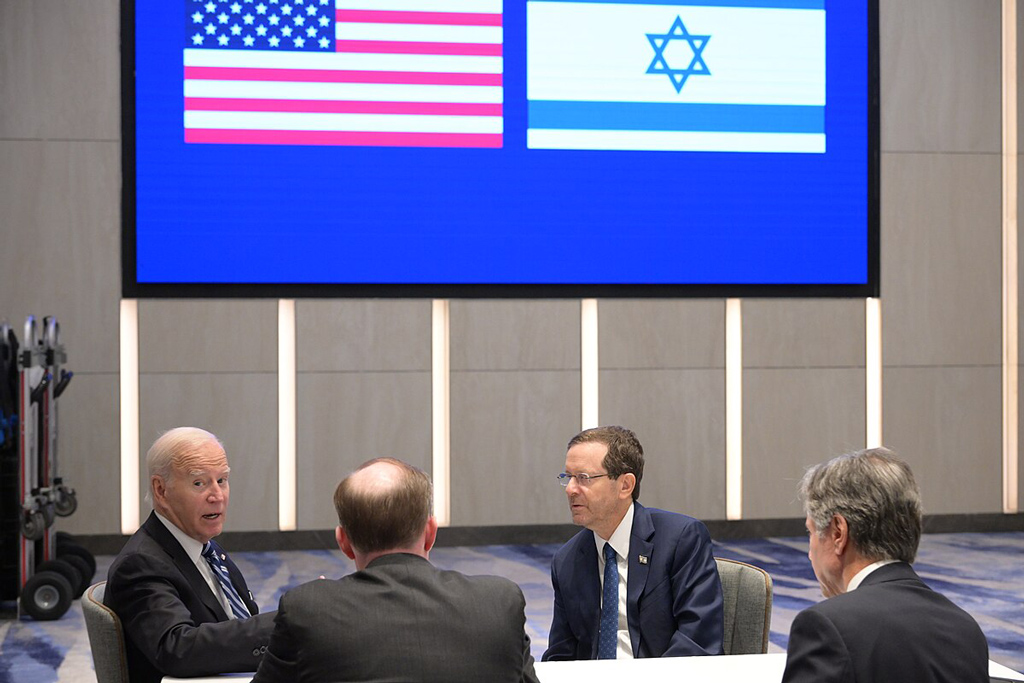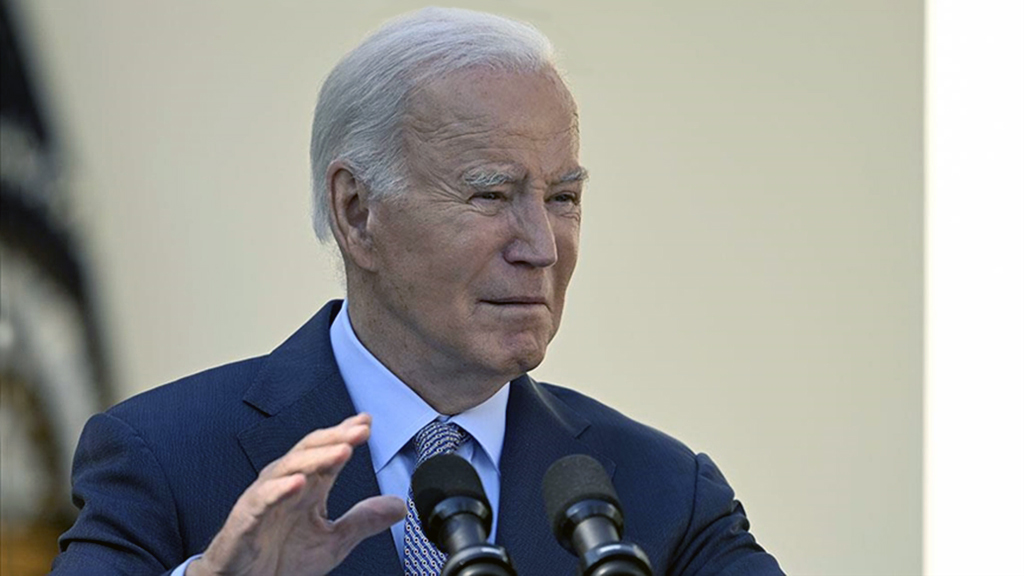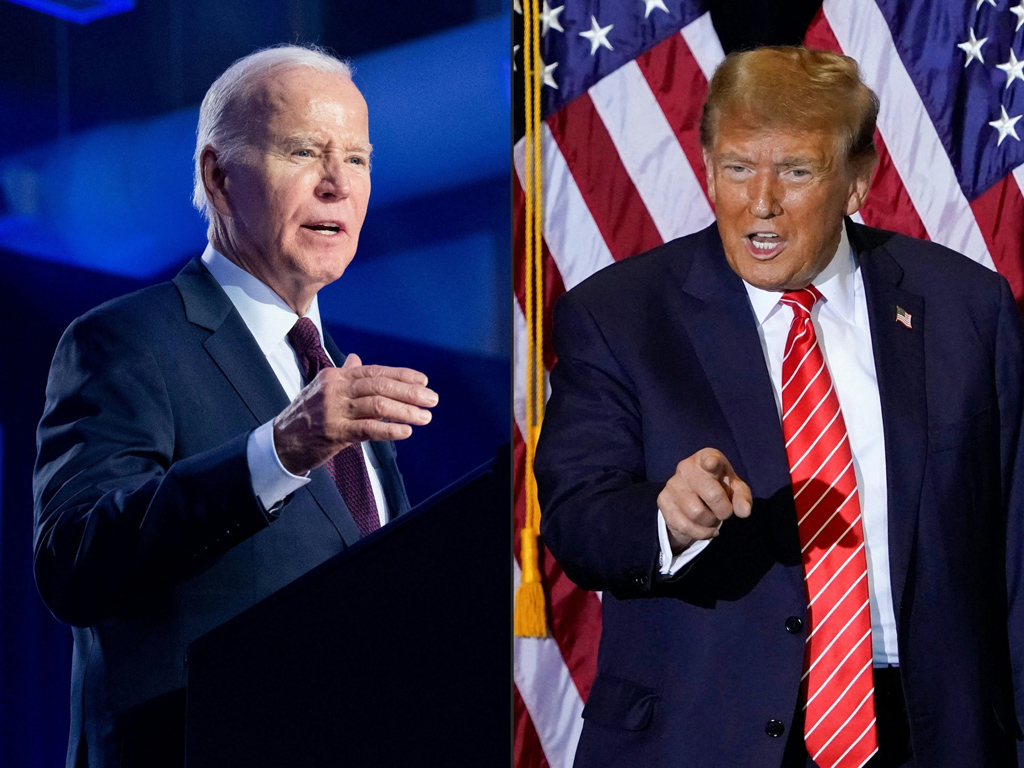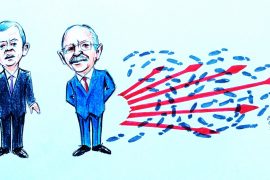US Elections 2024

Hamas’ acceptance of ceasefire and Israel’s Rafah operation
| OpinionDespite Hamas announcing its acceptance of the ceasefire on Monday, Israel stated that the agreement …
-
Opinion
Hamas’ acceptance of ceasefire and Israel’s Rafah operation
By Kadir ÜstünDespite Hamas announcing its acceptance of the ceasefire on Monday, Israel stated that the agreement did not meet their desired level. However, they announced that they would send a delegation to Doha for negotiations. Additionally, they indicated that the Rafah operation would proceed as planned, showing no intention to heed Washington's demands. Despite CIA Director Bill Burns being in the region for the Doha talks and the Biden administration's clear opposition to the Rafah operation, the Netanyahu government shows no signs of backing down. Reports of the Biden administration halting arms shipments to Israel, thus delaying Netanyahu's Rafah operation, had made Hamas' acceptance of the ceasefire a critical turning point. However, Netanyahu's efforts to both continue and expand the conflict from the outset pose the biggest obstacle to ceasefire efforts.
-
Opinion
AI and US elections: In between reality, malicious disinformation
By Gloria Shkurti Özdemir"It's important that you save your vote for the November election ... voting this Tuesday only enables the Republicans in their quest to elect Donald Trump again." This is how a voice message allegedly from U.S. President Joe Biden reached various voters in New Hampshire before the presidential primary elections.
-
Opinion
Trump’s election-focused abortion statement
By Kadir ÜstünIn the presidential race, Trump demonstrated that he would not take an ideological stance on the abortion issue, which Biden wanted to make a central agenda. Instead, he refused to be cornered on this issue. Conservative Republican groups expected Trump to support a law that would impose abortion restrictions across the country. However, Trump, having seen how supporting Trumpian candidates who advocated for abortion bans hindered their electoral success in midterm elections, did not want to face the same fate.
Bu Konuda Daha Fazla
-
What do the results of Super Tuesday indicate?
By Kadir ÜstünIn American elections, especially in swing states, the turnout of party voters is crucial. Trump, while seeking to win over independent voters against Biden, also needs to court Republican voters. Haley's announcement of withdrawing from the race and not endorsing Trump in her speech aimed to remind the party's internal opposition that cannot be easily ignored. Haley indicated this by stating that Trump would "make an effort to win the votes of those who didn't vote for him." Despite the knowledge that Trump would comfortably win on Super Tuesday and secure the party nomination, a quarter of voters in many states expressed their dissatisfaction by voting for Haley. Haley's ability to garner significant support without spending substantial amounts on campaign ads last week demonstrates the presence of a considerable number of people dissatisfied with Trump's candidacy.
-
Michigan sends Palestine message to Biden, issues centrism warning...
By Kadir ÜstünIn the recent primary elections held in Michigan, a state where Arab and Muslim voters could have a critical impact on the November 2024 presidential race, a clear message was sent to Biden regarding Palestine. Michigan, known as a swing state, saw Trump win over Clinton by a narrow margin of 11,000 votes in 2016. In this week's Democratic Party primary elections, the fact that over 100,000 voters opted for the 'uncommitted' option against Biden constitutes a critical warning to the President. The highly effective 'Dump Biden' campaign launched before the primaries was evidently impactful. Despite Biden's attempts to address the Palestinian backlash with some statements to the press before the primaries, it was revealed that these remarks did not suffice to appease the Palestinian sentiment within the party. So far, Biden has been gauging the reactions of young people, African Americans, and Muslims within the party through polls, but the results of the Michigan primaries indicate a shift in voting behavior among these demographics.
-
An elderly man with a weak memory but good...
By Kadir ÜstünThe recent comments by special prosecutor Robert Hur, appointed by the US Department of Justice, describing President Biden as a 'senile, well-intentioned, elderly man' reignited the debate about Biden's age. Biden's enduring image of being elderly and lacking dynamism seems to be his biggest disadvantage in the November elections. Holding the title of the oldest sitting president in American history, Biden will break his own record as the oldest presidential candidate in the November elections. The fact that Trump, at 77, is running against the 81-year-old Biden will leave American voters with the choice of electing their oldest president. While some argue that age discrimination is unfair, Biden's advanced age has become a significant point of discussion that could influence the outcome of the election. In addition to Biden's memory issues, his controlled and brief appearances in public, contrasted with Trump's more dynamic demeanor, present a serious handicap.
-
Pick your poison: Trump’s threats or Biden’s inertia on...
By Burhanettin DuranDonald Trump, who seeks reelection in the United States, made headlines with his most recent comments on NATO. It is a well-known fact that he had previously described NATO as “obsolete” and condemned NATO allies that did not meet the 2% defense spending target. This time around, the former U.S. president told a crowd in South Carolina that he would encourage Russia to do “whatever the hell they want” to any NATO country that does not meet its financial obligations. He made those remarks shortly after the Republicans blocked military aid to Ukraine and Russian President Vladimir Putin blamed the war on NATO’s fifth enlargement in an interview.
-
Trump, NATO, and American global leadership
By Kadir ÜstünThe remarks made by Trump, who is widely expected to run for president as the Republican Party candidate, regarding NATO once again underscored how fragile America's claim to global leadership is. Trump threatened to pressure certain NATO member countries to increase their military spending or face consequences. By stating that Russia could do whatever it wants with these countries, Trump escalated his anti-NATO rhetoric to new heights during his presidency. Trump's longstanding questioning of the concept of collective defense by the United States and his failure to protect a NATO member country practically spells the end of this military alliance. The loss of the deterrent effect of NATO's Article 5-based collective defense concept would not only undermine the alliance's guarantees but also signify the end of America's leadership within the Western alliance. As America engages in a global power struggle with Russia and China, it will become increasingly difficult for the country to conduct this struggle within the Western alliance without establishing unity.

















